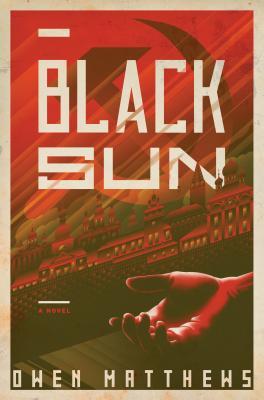MARKET WATCH
The market resurgence we've experienced since March has taken a break - at least for the time being, as most currently trade lower than they did at the end of August.
As is often the case, commodities have been most volatile. The price of gold (in U.S. dollars) is trading about three per cent lower this month, while Canadian energy stocks have fallen by a significant 14 per cent. Although considerably higher than its March lows, the TSX energy index is down by approximately 50 per cent year-to-date and trades near 30-year lows. When the global economy begins normalizing, there is good reason to believe it will rally significantly.
Less than 50 days remain before the American presidential election. And if we weren't already in for an eventful couple of months, the Trump administration has decided to replace the Supreme Court seat left vacant by the recent passing of Justice Ruth Bader Ginsberg.
As things stand, FiveThirtyEight - the source I trust most for American polls - has estimated Joe Biden has about a 75 per cent chance of winning. For those interested, his current 7.3 per cent lead in the national polls is stronger than Hillary Clinton's two-per-cent lead was on September 24, 2016.
With a second wave of COVID-19 cases and the upcoming U.S. election, I'm anticipating increased market volatility over the next few months. We will be keeping close watch.
|
|
IN THE REVIEW QUEUE
You may notice a reddish theme to this month's readings. You'll note that this hue does not represent rubies, roses or romance, but rather, a passion of a different sort - Communism.
Both the historical fiction novels I read (and quite enjoyed) are set in Communist Russia, while a number of the articles on my list explore China's past, present, and what may lie ahead for the world's most populous country.
I also read some wonderful essays and listened to a number of thought-provoking podcasts.

Books
Black Sun by Owen Matthews: A well-written murder mystery taking place in the Soviet Union of the ear
|
A FOCUS ON CHINA
How high the Chinese star will rise is yet unknown, but its continued geopolitical ascent seems assured. With that in mind, I like to keep up to speed of the comings and goings of the Middle Country.
Two lessons the Chinese learned from the century of "humiliation" by Tom Harper: The 110 years between 1839 and 1949 are known as the century of humiliation in China. This period left the country with two overwhelming impressions: that foreigners are a threat, and internal dissent leads to collapse. When considering this in context, it's easier to understand China's current behaviour.
Rethinking China (Part 1, Part 2) by Confluence: China's behaviour has recently become more aggressive. The question, however, is whether this behaviour is opportunistic and imperial in nature, or reactive and insecure. If global leaders fail to assess these intentions correctly, it could have dire consequences. If China is acting defensively, but the developed world responds in an aggressive manner, it could trigger a crisis that need not occur. On the other hand, if its intentions are sinister, appeasement could come at a significant cost.
The Evolving U.S. Policy Toward China and Its Impact on Investors by Confluence: A history of America's foreign policy in regards to China and what it may mean for investors.
The Changing World Order (Chapter 6 - China) by Ray Dalio: An exploration into China's past, beginning over two millennia ago and concluding in 2013. (Chapter 7, covers 2013 onward, and will be in next month's newsletter.) This chapter goes to great lengths to summarize the important aspects that influenced Chinese history and society, including its dynasties, economic and monetary systems, philosophies, and insecurities. There is a lot to digest here. If you don't have the time to read the whole chapter - it will take over an hour - this graph is a helpful illustration of China's geopolitical history, and likely future trajectory.
China's Historical Share of Global GDP by ABC: In the early 1800s, China was undoubtedly the world's largest economy. By 1950, not coincidentally the end of its century of humiliation (see above), it plummeted to developing world status. Since then, its GDP has risen to the second-highest in the world, and it's only a matter of time before it reclaims its previous status. Two other points of interest: India was once the world's second-largest economy, and is also rebounding; the relative decline of the U.S. since the early 1950s.
|
ARTICLES

We Need a New Science of Progress by Tyler Cowan and Patrick Collison: One of the two best articles I've read this year on how to improve society as a whole - the other being It's Time To Build. The authors' believe a multidisciplinary field is badly needed in order to study the manner in which progress or improvement occurs. On reflection, I find it surprising this field doesn't already exist.
An Inflection Point in Lebanon by Confluence: Beginning with the recent explosion in Beirut, Bill O'Grady discusses some of Lebanon's history and the geopolitical environment that surrounds the country today. After reading the article, I now understand why French President Emmanuel Macron visited the country shortly after the explosion.
Life is Short by Paul Graham: A nice reminder of how your time has value.
U.S. debt to reach 100% of GDP in 2021 by Axios: Although U.S. debt levels have increased since the 90's, its rate has worryingly accelerated since 2008. Unfortunately, the pandemic has made this situation even worse. At the current rate, America's debt is expected to reach 100 per cent of their GDP next year, and an all-time high can be expected a few years afterwards. Historically, when a nation's debt threshold reaches 100 per cent of GDP, their economy's flexibility is restricted and future growth potential curtailed. This is a story worth monitoring.
|
The Learning Project with Derek Sivers: Far-ranging conversation that includes how we often imitate each other, the importance of deep work and why reflection is so important.
The Portal with Rabbi Wolpe: Interesting discussion ranging from spirituality to past and present-day Judaism, its culture, and the importance of traditions.
Armchair Expert with Bill Gates: Great interview, despite the host being slightly start-struck, covering a number of topics. It's hard not to be impressed by Bill Gates.
|
YOU'LL GET A KICK OUT OF THIS
 Although I had my doubts, football season is back, and so far without a hitch. If that wasn't enough, my once lowly Buffalo Bills are looking better than they have in decades.
Yes, yes, that isn't saying much for a team that failed to make the playoffs 17 years in a row, but this year could be different. We've won our first two games and are expected to make the playoffs. Keep your fingers crossed!
|
SELECT INSIGHTS
"I've always had the view that how successful you are is really a function of how you deal with failure. If you deal with failure well and you persist, you have a high probability of being successful."
- Bill Ackman, on the link between success and failure
"One should wish to celebrate more than one wishes to be celebrated."
- Lucille Clifton, on emphasizing joy over status
"For what matters in life is not whether we receive a round of applause; what matters is whether we have the courage to venture forth despite the uncertainty of acclaim."
"It is a sad but unavoidable fact of life," he began, "that as we age our social circles grow smaller. Whether from increased habit or diminished vigor, we suddenly find ourselves in the company of just a few familiar faces."
"Alexander Rostov was neither scientist nor sage; but at the age of sixty-four he was wise enough to know that life does not proceed by leaps and bounds. It unfolds. At any given moment, it is the manifestation of a thousand transitions. Our faculties wax and wane, our experiences accumulate and our opinions evolve--if not glacially, then at least gradually. Such that the events of an average day are as likely to transform who we are as a pinch of pepper is to transform a stew."
|
|
|
|
This provides links to other Internet sites for the convenience of users. Raymond James Ltd. is not responsible for the availability or content of these external sites, nor does Raymond James Ltd endorse, warrant or guarantee the products, services or information described or offered at these other Internet sites. Users cannot assume that the external sites will abide by the same Privacy Policy which Raymond James Ltd adheres to. The views of the author do not necessarily reflect those of Raymond James. This article is for information only. Raymond James Ltd. Member-Canadian Investor Protection Fund.
|
|
Copyright © 2017. All Rights Reserved.
|
|
|
|